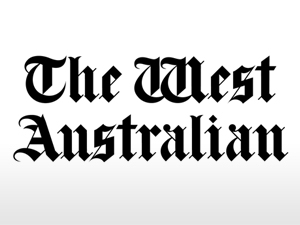
Article by Dan Jervis-Bardy for The West Australian

The development of new federal Aboriginal cultural heritage protections is being slowed to help avoid fuelling confusion about the Indigenous Voice to Parliament and prevent the WA debacle erupting on a national scale.
First Nations Heritage Protection Alliance co-chair Jamie Lowe said the federal process wanted to avoid falling into the “trapdoor” as it did in WA where “no one was happy” with the now-scrapped changes.
Environment Minister Tanya Plibersek is highly unlikely to be presented with options to strengthen federal legislation until after the referendum — expected in October — and might not receive them until early next year.
The West can also reveal the First Nations alliance and federal department it is working with on the changes effectively went back to the drawing board after privately conceding the decision to put forward specific options after the first round of consultation had been “pre-emptive”.
Among the proposals canvassed in last year’s “options paper” was for Commonwealth legislation to override State-based cultural heritage protections.
Ms Plibersek has since taken that off the table, with the Government instead intent on updating existing laws to prevent a repeat of the Juukan Gorge blast.
The Albanese Government is facing fresh questions about its plans for federal Aboriginal cultural heritage reform after WA’s stunning decision to abandon its trouble-plagued new system.
The federal Environment Department has been working with the First Nations Heritage Protection Alliance to design options through a process started under the Morrison Government in 2021.
After the first round of consultation produced the “options paper”, the second phase was launched to refine recommendations to the Minister.
Those were supposed to be presented earlier this year — but that’s still yet to happen.

Mr Lowe told The West that a decision was made to put the brakes on and take a step back after accepting that drawing up options so early on had been “pre-emptive”.
The Native Title Council chief executive said “in hindsight” it would have been better to take time to assess what was happening in the States and Territories, including WA.
He said the process also needed clean air — something that wouldn’t be possible after WA’s cultural heritage laws become entangled in debate about the Indigenous Voice to Parliament.
“We had already slowed it down, so why would we speed it up when that is playing out?” he said.
“There is not enough attention to it because people are consumed by the Voice and it gets conflated.”
While Ms Plibersek’s statement about updating existing legislation appears to be a watering down of a previous commitment to new standalone laws, Mr Lowe is reserving his judgment.
“It all gets down to the detail,” he said. “What does the update look like? It could be a few words or it could be a comprehensive reform.”
Mr Lowe said the alliance wasn’t forming views about particular options at this stage.
He said any changes must be rooted in the principle of protecting First Nations heritage.

But they must also work — and be embraced by — the broader community.
“There is no interest from Aboriginal and Torres Strait Islander communities to shut industry and development,” he said.
“(First Nations) Heritage should be treated as Australia’s heritage. Everyone has an interest in protecting it. Everyone values it and everyone protects it.”
In a statement to The West, Ms Plibersek’s spokeswoman reiterated that it was consulting thoroughly with First Nations groups and the process was in its “early stages”.
“We won’t be rushed, and we won’t cut corners. Everyone will get their chance to have their say,” the spokeswoman said.

